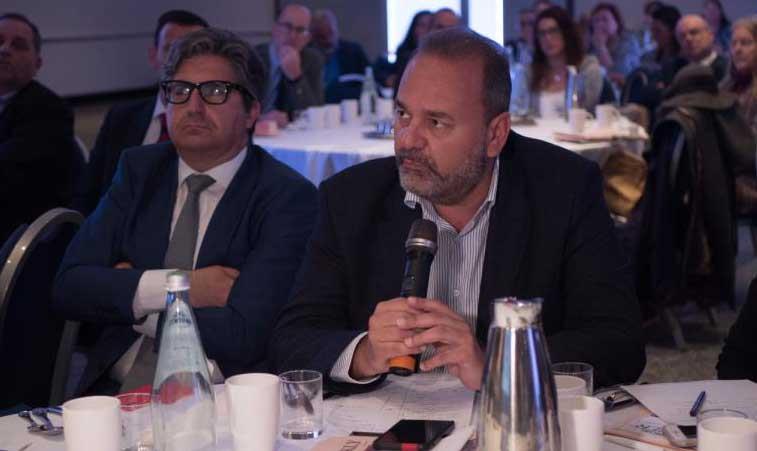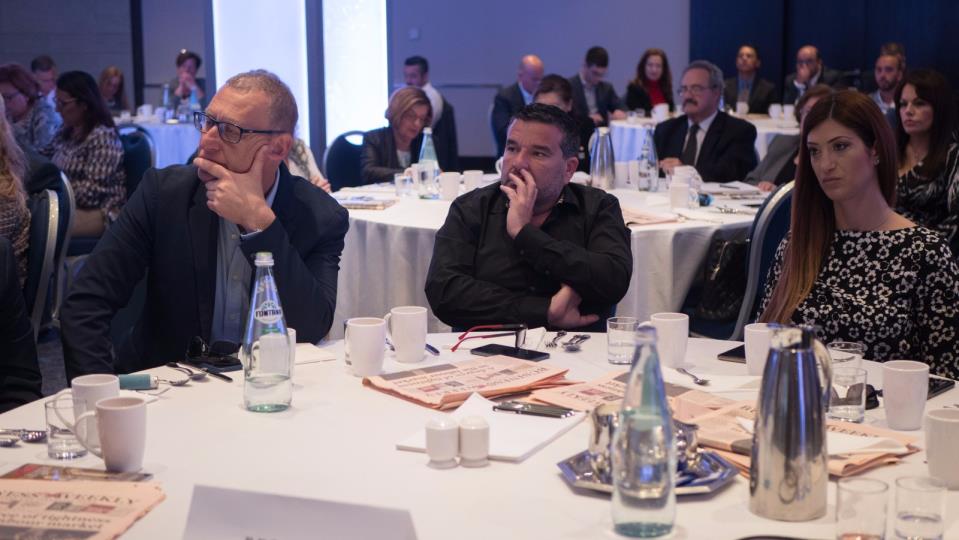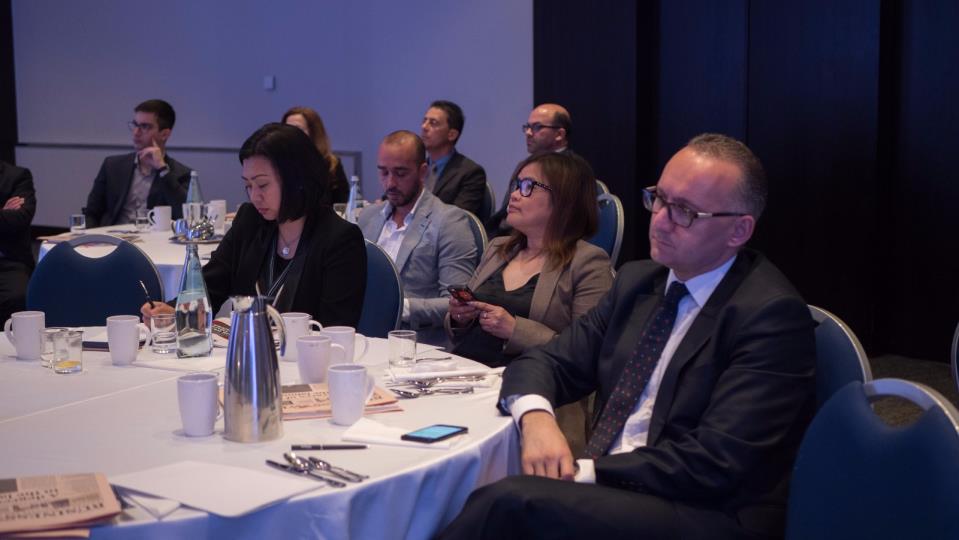Malta’s education system must look further ahead and focus on students who in 10 years will be employed within our economy to see that they are properly equipped to have successful careers in high quality employment, MEP Miriam Dalli said at the Malta Business Weekly’s Business Breakfast which focused on the industry of the future.
“The education system must work hand in hand with industries to give students firsthand experience, something which may have a life changing impact on students who may be choosing their preferred career path”, she said.
Dalli was speaking at a business breakfast organised by the Malta Business Weekly in collaboration with Labour MEP Miriam Dalli which focused on the industry of the future and the challenges and opportunities of the future. Standard Publications Managing Director Noel Azzopardi introduced the business breakfast, which contained an address by Dalli, a keynote presentation by Dalli and a panel discussion moderated by Malta Independent Editor-in-Chief Rachel Attard.
The fourth industrial revolution – or, Industry 4.0 – focuses on digitisation and auto-production, allowing companies to work more efficiently and productively, Dalli said. However, it should not only focus on digital transformation – it must include ecological and socio-economic aspects as well, she said.
“In today’s reality, production systems that can incorporate sustainability into them are the ones which will be competitive in the long term”, the MEP said.

Dalli said that the current rapid pace in technological advancement has an element of socio-ecological impact, meaning that we need to look at innovative systems that boost our economy and at the same time protect our environment.
Innovation should be coupled with access to financing, targeted educational programmes and collaboration between institutions, the private sector and the public sector, she said.
Digitisation should not be seen as a cost-cutting exercise but as a measure that can improve efficiency and productivity in Malta, she said before adding that the manufacturing sector especially has proven to be innovative and competitive abroad.
However, when it comes to the number of skilled Maltese personnel, the country does not have enough. A strong workforce is key and we must ensure that Maltese and foreign employees can work together effectively, Dalli said.
It’s a workforce which also has to re-skill and indeed up-skill itself to continue to ensure that they have quality jobs. With regards to the educational sector, Dalli said that we must look further ahead and focus on students who in 10 years will be employed within our economy to see that they are properly equipped to have successful careers in high quality employment.

“The education system must work hand in hand with industries to give students firsthand experience, something which may have a life changing impact on students who may be choosing their preferred career path”, she said.
She also touched upon the need to sustain the current economic growth, referring to the government registering a surplus for the third year in a row, and praised the investment in fibre-optic in Gozo as announced yesterday. She concluded by touching upon the need to push further for further change and more funding in the research and development department.

Addressing the floor with his presentation, Jonathan Borg, a Professor within the department of industrial and manufacturing engineering at the University of Malta, spoke of the need for a dedicated strategy that caters for the fourth industrial revolution.
“We have the jigsaw puzzle pieces but we need the glue to bring them together”, Borg said as he described the need for such a policy.
He emphasised the need to continue innovating and to continue funding innovation and said that we should lead this fourth industrial revolution in Malta which looks at the next decades.

Economy Minister Chris Cardona, who was a guest at the Business Breakfast, meanwhile emphasised that the European Union must recognise that countries like Malta are not only competing with their geographical neighbours in manufacturing but with countries far and beyond Europe.
“We do speak about access to finance, having more incentives, helping innovation, venture capital and equity at an EU level but we must also stress the fact that state aid today is not necessarily helping as much as it helped when we needed to set standards”, Cardona said.
The economy minister said that governments must be left with more leverage to decide nationally what to do and what not to do. This should be one of the main things that should be discussed in thematic and sectoral discussions on industry as sometimes the country loses investment because the government cannot intervene.
A panel discussion moderated by The Malta Independent Editor-in-Chief Rachel Attard followed, with Malta Enterprise CEO Mario Galea, the CEO of The Pace Company Nadia Pace, the Managing Director of Trelleborg Malta Martin Hignett, and the CEO of Beat Limited Joseph Micallef as guests.
Galea spoke of the need for improvements in the availability of finance and incentives and also advisory structures which especially cater for small to medium sized industries who face risks in this scenario of industrial change.

He said that there was the need to balance out; the bottom line is that business grows on profit and while technology is a means to gain profitability, not all businesses will be able to adopt industry 4.0. Technology that suitably fits the needs of the business is the way to go, Galea said.
Pace spoke of the importance of human resources and of upskilling the workforce. She also spoke of the need to work with emerging start-ups, saying that these young and innovative companies give the opportunity for businesses to work closely with them and learn from them and their ideas.
Hignett said that the fourth industrial revolution does not spell the end for the manufacturing industry; but it will spell the end if the industry does not develop to meet it. He also noted that the industry needs to be knocking on the door of educational institutions such as the University of Malta and MCAST and offering internships and part time jobs to students so that they can easily get into the sector and harness their potential.

Micallef meanwhile said that whilst it is good to speak of things like Artificial Intelligence and other such technology, it is a fact that small, medium and sometimes even large businesses may find this overwhelming. He said that one has to knock things down a few notches to fit the appetite of the business. If the said business has the energy to fully follow these new technologies, then by all means they should do so; but if there are businesses that feel the need to digitise only a few steps to attain higher results, then they should do that and not be pressured to go straight into the newest and most high tech pieces of technology.
In her closing address, Dalli emphasised that innovation is key and that this is not just about technological advancement but also about changing the way we think. She said that she had visited a number of companies with the aim of understanding the challenges that they face so that she can then work to address them at a European level.
She called for more synergy between schools and the manufacturing sector, saying that this synergy has to extend to secondary schools as well. The main aim, she said, was to make youths dream to achieve more and take a step forward to progress into the future.